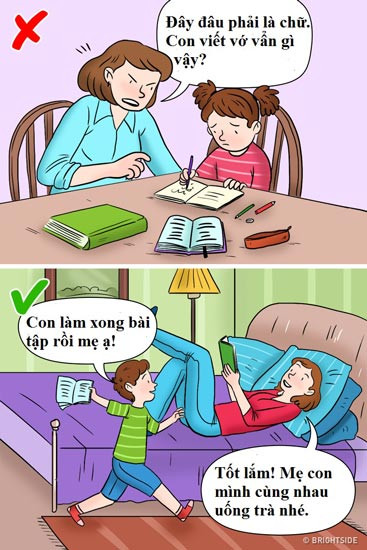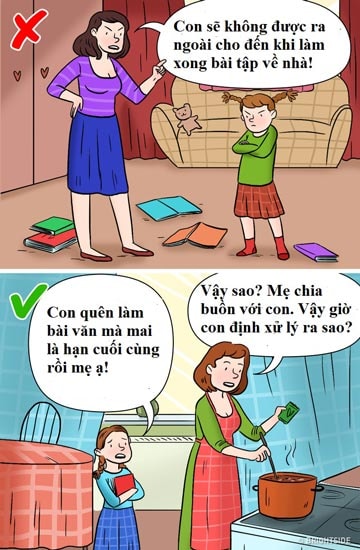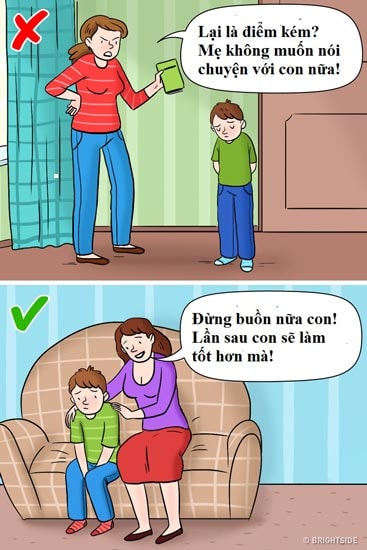3 mistakes Vietnamese parents make when their children do homework
Many parents believe that if they do not participate and control their children's homework, their children will neglect and do poorly in school. However, according to experts, the opposite is true. Parents' help can negatively affect children's academic performance.
1. Makes children lose motivation to learn

According to one study, the more parents get involved in their children's homework, the less interested they become in learning.
When parents sit next to them and tell them what to do, control every step and even do their homework, they will have no motivation at all. Meanwhile, children who are not "pushed" by their parents to study have a greater desire to learn and a greater desire to explore new things.
Parents should remember to only help when their children ask. Even when asked, you should only explain things your child doesn’t understand, not do it for them. If your child can’t do a task, acknowledge his or her feelings. For example, you might acknowledge that your child has the right not to want to copy a boring paragraph or practice writing a letter 10 times in a row. Then, you can share your own methods for completing unwanted tasks.
2. Children do not know how to take responsibility

By monitoring your child’s homework, monitoring the process, and punishing poor grades, you become responsible for their learning. This means that you are removing the responsibility for their learning from them. Therefore, the more controlling you are, the less likely your child will see it as their own.
Being able to take responsibility for your actions is more important than being able to do the job. Experts say to show your child the possible consequences and let him make the choice: "Didn't you do your homework? Explain it to your teacher."
3. Destroy the relationship between parents and children

"Homework is done. Mother's voice is hoarse. Daughter's ears are ringing from the shouting. Neighbors have a chance to memorize the poem", is a funny story but in reality it is true, the important thing is that it can ruin the relationship between parents and children.
Instead of controlling each task, psychologists advise you to build a relationship with your child based on trust, spend a lot of time together. Every night, when you have time, you can read aloud while sitting with your child, discuss current events in the world, talk about interesting scientific phenomena, schedule an interesting activity on the weekend to stimulate the child's desire to learn.
If you are not willing to accept your child's bad grades, ask yourself why you are making such a big deal out of it. Children often feel unloved when they grow up in a family where a bad grade can change how they are treated.
According to psychologists, studying is a child's personal task, while a parent's personal task is to love their children unconditionally, because love is more important than grades.



